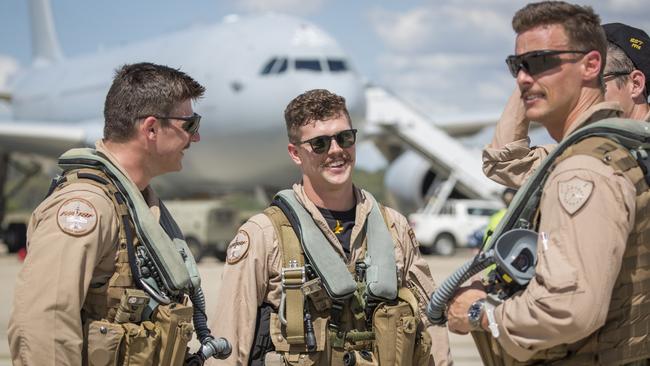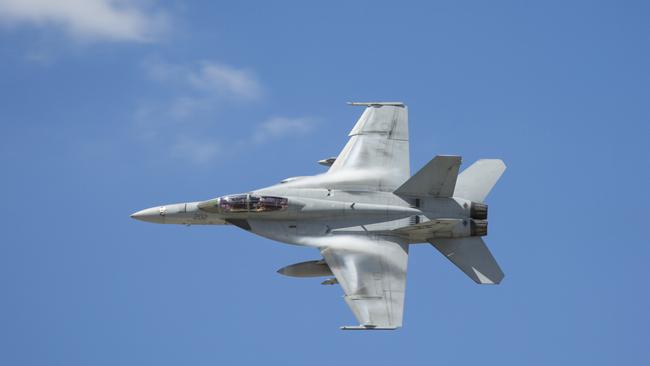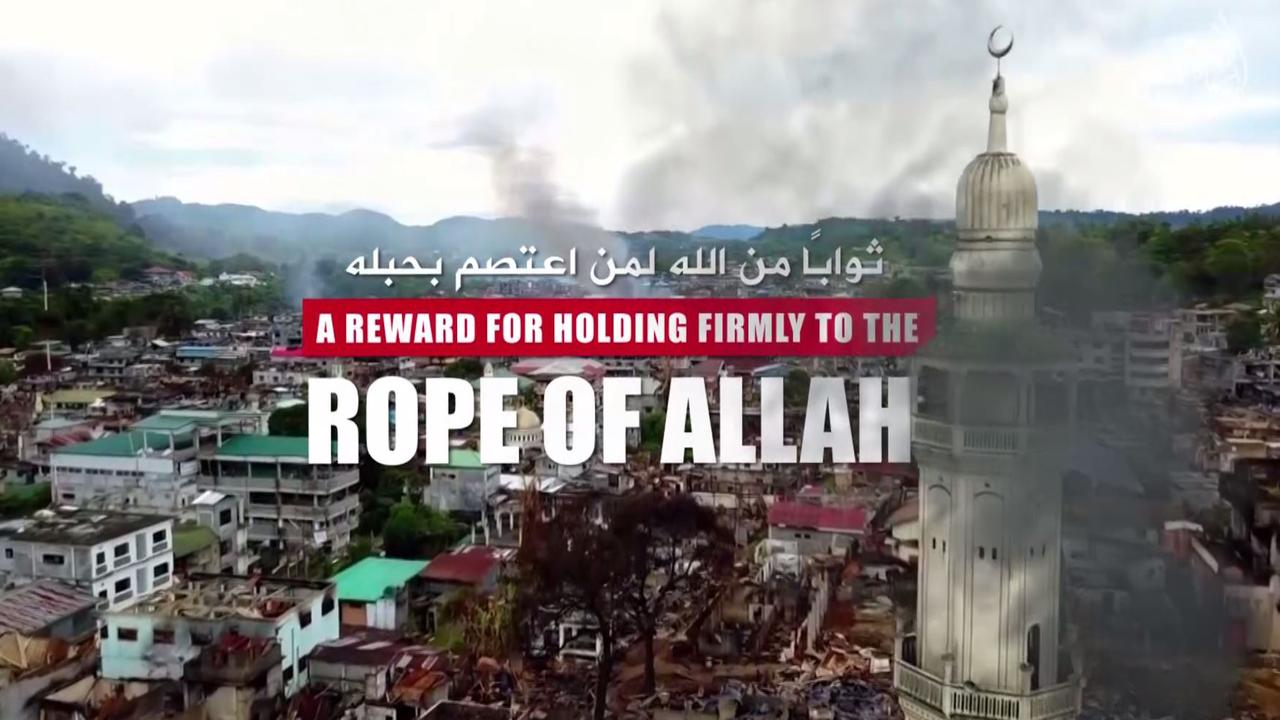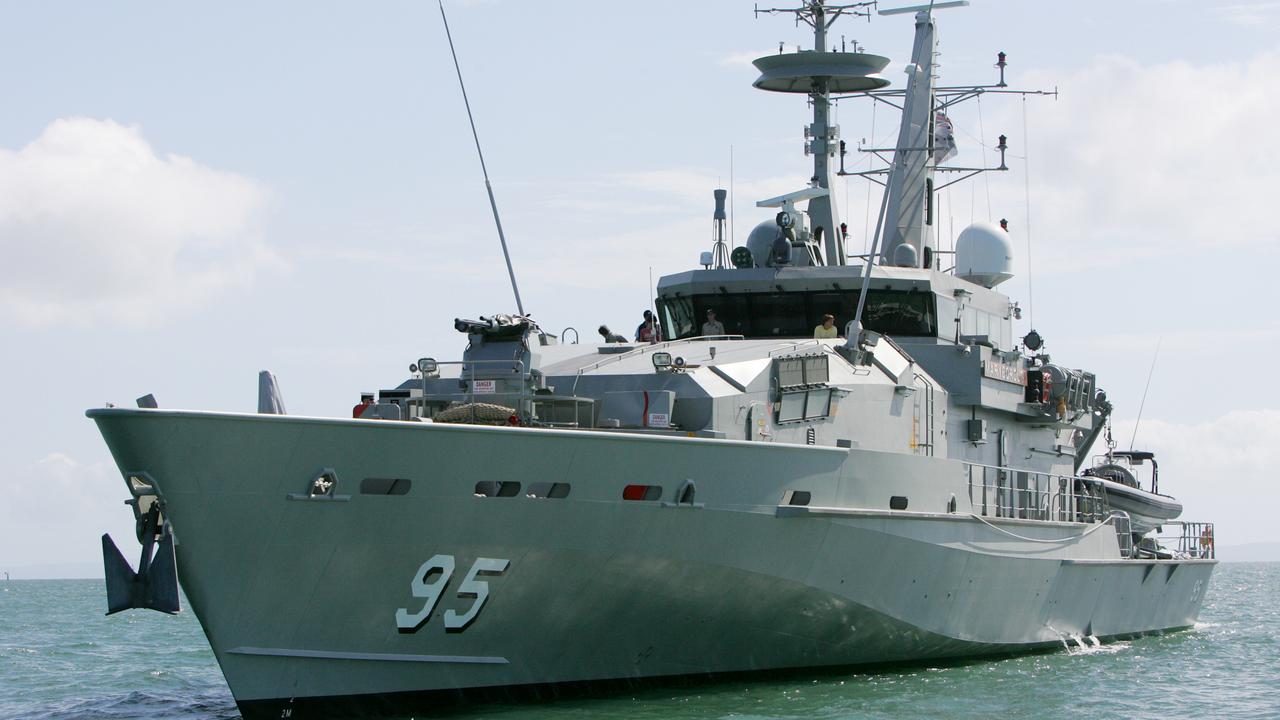Australian Defence Department says international law is ‘challenged’
The legal system credited with avoiding another hot world war is under renewed stress in the Middle East and East Asia.

Australia’s defence forces say they rely on observance of international law in their efforts to limit or forestall conflict, but the legal system credited with avoiding another hot world war is under renewed stress in the Middle East and East Asia.
In the Middle East, a small element of the Australian Defence Force will continue in the US-led coalition’s fight to eliminate the self-styled Islamic State, after declarations it has been largely defeated, and Australia has joined the US in opposing China’s military occupation of islands in the South China Sea to extend territorial claims and North Korea’s nuclear- weapons program.
Prime Minister Malcolm Turnbull last January hailed success against Islamic State, also known as ISIS, ISIL and Daesh, in addressing Royal Australian Air Force personnel returning home from combat operations over Iraq and Syria.
Mr Turnbull joined excited families at Amberley air base near Brisbane to celebrate the safe return of six F/A-18F Super Hornet aircraft and the end of more than three years of Australian air strikes in the region. But an Australian KC-30A air-to-air refuelling aircraft and an E7-A Wedgetail airborne early warning and control aircraft and associated personnel remain in the US-led Iraq/Syria coalition campaign.
Coalition operations in Syria appear to have skirted a majority interpretation among nations of part of international law regarding intervention but if so, given the necessity of combating the ISIS terror group, that has not so far become an impediment.
A Defence Department spokesman told The Australian this week that the fight against ISIS continued, but at a lower level, and the government “periodically reviews the legal bases” for ADF operations. ADF operations in Syria “continue as part of the collective self-defence of Iraq”, the spokesperson said.
“Despite Daesh’s recent loss of the vast majority of territory it once held, there remains work to be done to clear remnants from parts of the Euphrates River Valley near the border with Iraq,” according to the department’s spokesperson.
“Daesh also retains a presence in other parts of Syria.”
The Defence spokesperson added: “As Daesh is defeated in the Middle East, terrorist fighters may attempt to make their way to our region. That is why we are committed to working with our regional partners and allies in the Indo-Pacific to prevent Daesh-inspired terrorism from gaining a foothold here.’’
From early October 2014 the Hornets flew 2799 “sorties” totalling 21,763 hours in support of Operation Okra, Australia’s military contribution to the US-led coalition. Air strikes started in Iraq and extended into Syria in 2015.
Mr Turnbull told the assembled servicemen and women in January that ISIS had lost 98 per cent of its territory. “The so-called capital of their so-called caliphate, Raqqa, has fallen, Mosul has fallen … they have now been defeated in the field thanks to you,” he said.
Six weeks earlier, Iraqi Prime Minister Haider al-Abadi had declared an end to his country’s military campaign against ISIS with Iraqi forces in “complete control” of the border with Syria.
But in late January, US Secretary of State Rex Tillerson said US forces would remain in Syria to prevent ISIS or other terrorists from re-emerging and help pave the way for “the departure of [Syrian President Bashar] Assad through the UN-led Geneva process [to] create the conditions for a durable peace within Syria”.
US aircraft acting “in defence of coalition and partner forces” have since bombed pro-government fighters in eastern Syria.
The Australian Hornets flew their last mission on January 14 but not all RAAF personnel deployed under Operation Okra have come home. The KC-30A and Wedgetail and personnel would “continue to support the coalition air campaign in Iraq and Syria”, the ADF chief, Air Chief Marshal Mark Binskin said on January 16.
Both aircraft have operated in Iraqi and Syrian air space in support of the Hornets and other coalition aircraft. The refueller entered Syrian airspace on 116 occasions, and the Wedgetail 194 times, between September 2014 and June 2017, the ADF reported.
While the coalition is in Iraq by invitation, Syria’s government has called coalition attacks in its territory “blatantly inconsistent” with the UN Charter and Security Council resolutions.
The Security Council had proven ineffectual in applying international law to the Syrian conflict before present deliberations over the battle for the rebel-held Damascus enclave of eastern Ghouta.

Russia and China had blocked an Australian-supported attempt to refer Syria to the International Criminal Court for violations of international human rights law.
Amnesty International has accused the Assad government of war crimes including indiscriminate and direct aerial attacks on civilians. Amnesty has also accused coalition forces in Syria and Iraq of violations of international humanitarian law, “some of which may amount to war crimes”.
In joining the attack on ISIS in Syria, Australia invoked the principle of “collective self-defence” of Iraq under Article 51 of the UN Charter. “The government of Syria has, by its failure to constrain attacks upon Iraqi territory originating from ISIL bases within Syria, demonstrated that it is unwilling or unable to prevent those attacks,” Australia told the Security Council in September 2015.
The “unwilling or unable” principle has increasingly been invoked since the US attack on Afghanistan in 2001 but Australia is one of only 10 states to have explicitly endorsed it.
Ben Saul, professor of international law at the University of Sydney, said the doctrine was of “doubtful legality” and most governments did not support it.
Alison Pert, international law lecturer at the University of Sydney, said it was an “unanswered question” how long and how far coalition military action in Syria could legally continue. “If we knew ISIS was no longer attacking Iraq from Syria then that would place Australia and the rest of the coalition in a difficult legal position,” she said.
“The law says that at the very least, an attack has to be imminent before you can act in self-defence,” Dr Pert said.
Kevin Boreham, co-ordinator of the International Law Clinical Program at the Australian National University’s College of Law, said it would be “useful” for the government to restate its grounds for intervention in Syria. “The substantial defeat of IS puts a greater question mark on the legality of the continuing mission,” he said. “It has become more difficult for Australia to justify its continuing involvement in terms of international law.”
Professor Saul agreed the government should explain the RAAF’s continuing role in Syria.
“Given that they have declared a kind of victory moment and yet are still participating in military operations through the deployment of Australian aircraft, it is fair that the Australian community be told what is the continuing basis and nature of the threat,” he said.
He said the legality of operations against ISIS in Syria depended on the nature of any ongoing threat to Iraq. “Clearly there are elements of ISIS committed to continuing the fight in parts of Syria.
“Whether they have got the capability to threaten Iraq is a bigger question. The test is, is there a threat of imminent armed attack. It can’t be something which is distant or speculative. To use an analogy, North Korea and the US are threatening one another all the time but neither seems about to launch an imminent attack,” he said.
The Defence spokesperson told The Australian that international law, especially compliance with international humanitarian law obligations, “continues to have a critical role in limiting the effects of armed conflicts”.
“However, as outlined in the 2017 foreign-policy white paper, international rules designed to help maintain peace and minimise the use of coercion are being challenged,’’ the spokesperson said.
“Australia supports enhanced compliance by all states and non-state actors with international law, including international humanitarian law.”
Strengthening international law and “guiding its evolution” is part of Australia’s “strategic agenda”, according to the secretary of the Department of Foreign Affairs and Trade, Frances Adamson.
Clear international law and strong norms gave Australia “purchase” with even the most difficult international problems, Ms Adamson said in a speech last October.
On the South China Sea dispute, she said Australia would seek to work with China towards a peaceful settlement “free from coercion” despite Beijing’s rejection of a Permanent Court of Arbitration ruling in 2016.
“It is in our interests to engage China in the development of discrete, practical legal frameworks for activities such as fisheries management and marine research that apply specifically in the South China Sea and demonstrate a commitment from China to respect the rights of its neighbours there.”
On the Korean peninsular, she said the global nuclear non-proliferation regime “founded in international law” had isolated North Korea as the only state to conduct nuclear tests this century.
“Increased sanctions authorised by the United Nations — applied effectively, and universally — may yet have an effect on North Korea’s strategic calculus.
“International law has provided a common frame for the very different interests that South Korea, Japan, the United States, China and Russia have in the Korean peninsula and North Korea’s nuclear program. This situation is more conducive to governments pursuing prudent and considered policy than would otherwise be the case,” the DFAT secretary said.
Chris Ray reported from Syria in 2013 and 2015.




